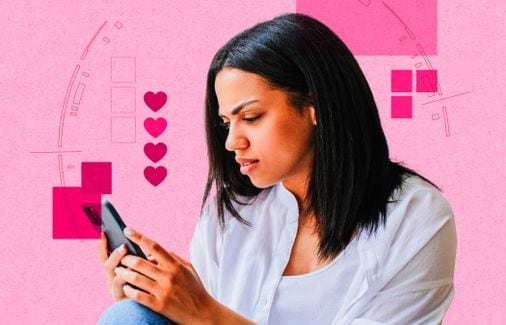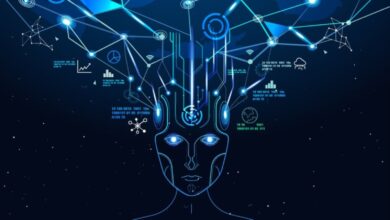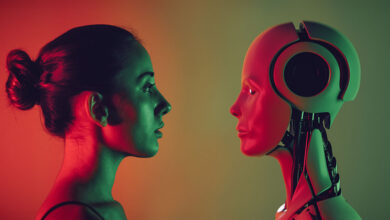Can artificial intelligence improve them

But widespread user dissatisfaction is hitting apps where it hurts. Take Bumble: Since going public in 2021, its stock has plummeted by about 85 percent. In November, Bumble’s founder, Whitney Wolfe Herd, stepped down after a decade as chief executive. Soon after, Lidiane Jones, her replacement, announced a plan to cut nearly a third of employees. Meanwhile, Bumble’s rival Match Group, which owns Tinder, Hinge, and OkCupid, saw a significant drop in its stock price last November, in part due to Tinder’s struggle to retain paying subscribers.
Anecdotally, I only ever hear bad reviews of dating apps. Friends are constantly deleting them in a huff — frustrated by conversations that fall off a cliff, dates that feel like job interviews, people who are charming online and painfully awkward in person — and then re-downloading them days or weeks later. They talk about these moments of “weakness” the way a now-sober alcoholic might characterize walking into a bar. (In fact, six plaintiffs sued Match Group in February, accusing the company of gamifying dating — in violation of consumer protection laws — to “transform users into gamblers.” A company spokesperson told NPR that the suit is “ridiculous and has zero merit.”)
As a new generation begins to date, could advancements in artificial intelligence — the darling du jour of the tech world — end the dating app slump? Or will that chase users away with swarms of chatbots and fake, algorithm-optimized profiles?
Major players such as Match Group and Bumble are betting heavily on the potential of AI. In an earnings call this January, Bernard Kim, the chief executive of Match Group, described AI as “existential” to the company’s future, and promised to invest $20 to $30 million in it.
Bumble and Match Group both have plans for tools powered by machine learning. Already, Tinder is testing a feature that searches your photo library and chooses the best profile images. Another tool Match Group is developing will provide conversation starters or date ideas. At Bumble, they envision AI giving feedback on photos, helping users craft their bios and messages, and writing compatibility summaries for matches.
These could all be offered free of charge, as add-on costs, or as benefits included in memberships, which dating apps are increasingly relying on as sources of income. So far, converting casual users into paying subscribers has been a challenge — about three-quarters of users don’t pay anything for their dating apps, according to a report from Morgan Stanley.
A new crop of dating apps built around AI takes things even further. AI conversation apps such as Rizz and Keys, for example, say their technology can help people come up with better dating bios and messages to send to matches. And recently launched Volar gives each user an AI assistant that simulates dates with other users’ AI assistants. After those assistants chat, both human users then read a transcript of the conversation to decide whether to pursue the match.
Annabel Iwegbue, 25, gave Rizz a spin for a feature about dating and AI for Cosmopolitan. The Rizz model is simple: Take a screenshot of a match’s bio or of a question they asked you, upload it, and wait for a machine-made conversation starter or response. “None of the responses were anything close to what I would naturally want to say,” Iwegbue tells me.
Madeline Salazar, 30, has a TikTok account where she posts satirical videos of herself using AI to generate prank images that are entertaining (and also mildly terrifying) in their realism. In one, she gets the attention of an unresponsive boyfriend by using AI to edit a photo, making it look like a hot male neighbor has come over. In another, she enacts revenge on someone who’s ghosted her for six months by sending a fake photo of herself . . . six months pregnant. Her videos show how effectively AI can create illusions when wielded with skill.
But when Salazar tried using AI to craft something real — a dating bio that reflected the subtleties of her personality — the results were “very generic, cookie-cutter” she says. ChatGPT, an AI chatbot, kept spewing out options that were “the corniest jokes in the world.” In researching this article, I found hundreds of videos tagged #rizzapp or #rizz (which look like ads, though the creators do not call them that) showing conversation starters or responses. Most reminded me of the kinds of jokes that would make teen boys high-five each other.
When it comes down to it, a bot or an AI assistant can only go so far. “Once you meet someone in person, you are who you are,” Salazar says. “You’re not these five pictures and three quippy sentences.”
Valeriya Safronova is a freelance journalist covering gender, the arts, business, and foreign affairs for The New York Times, The Washington Post, The Parliament magazine, and more. Send comments to magazine@globe.com.



